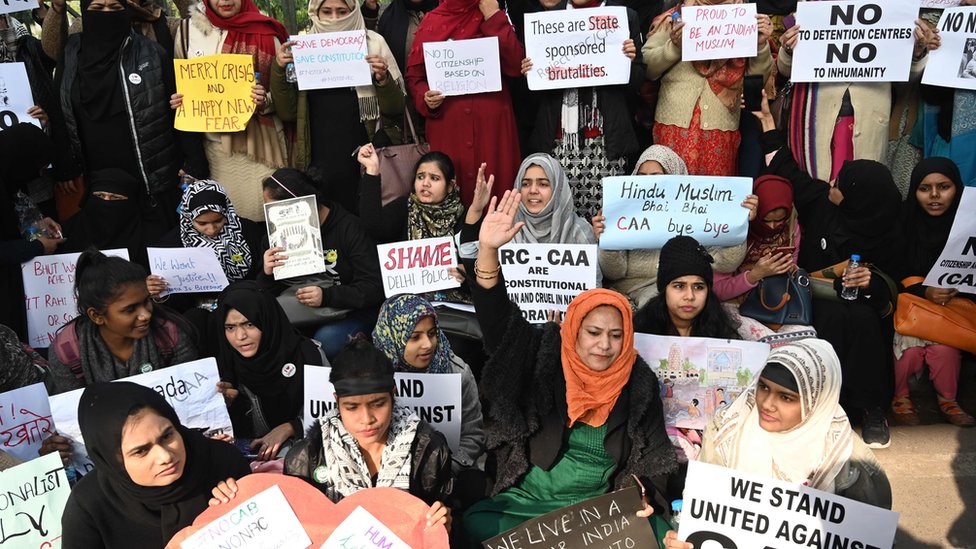

Michigan - The American Center for Justice (ACJ) said that India's announcement of the entry into force of the controversial Citizenship Law passed in 2019, which grants the right to nationality on the basis of religion, is considered a discriminatory decision against Muslims and violates the most important fundamental rights.
Last Monday, the Indian government announced, through its Minister of the Interior, that it had begun official procedures to amend the Nationality and Citizenship Law, which allows followers of religions that represent a minority in neighboring countries, such as Pakistan, Bangladesh, and Afghanistan, to obtain Indian citizenship after it was prohibited for the past decades. The Indian government explained its decision by saying that it aims through this amendment to “confront the persecution” to which these minorities are subjected.
According to the ACJ's review of the texts of the newly approved Citizenship Law, it was found that the Citizenship Law issued in 1955, which prevents illegal immigrants from applying for Indian citizenship and which was amended in December, aims to grant Indian citizenship to religious minorities (Sikhs, Hindus, Christians, and others) who are persecuted in neighboring Islamic countries, with the exception of Muslims. The ruling party was able to pass this law by exploiting its majority in Parliament.
The Center stated that the new amendment to the Indian Citizenship Law would allow immigrants coming from Pakistan, Afghanistan or Bangladesh to be granted citizenship on the condition that they prove their arrival in India before the end of 2014. It is noteworthy here that the implementation of the amendment to the citizenship law was postponed after strong protests led mainly by the Muslim minority and opposition parties last year, and these protests left more than a hundred dead.Tension also prevailed in the country for days.
In turn, the leaders of the Muslim minority in India and many human rights organizations criticized the amendments to the citizenship law. They stressed that it contradictes the Indian Constitution, which guarantees equality for all individuals, while the United Nations High Commissioner for Human Rights described the law as “fundamentally discriminatory.”
The ACJ believes that the amendments approved to the Indian Citizenship Law show the government's selectivity in a way that contradicts the principle of secularism in the Indian Constitution, which prohibits religin- based discrimination.The center stressed that the new amendment does not include Muslim minorities in other neighboring countries who suffer from religious persecution, such as the Tamils in Sri Lanka. The Indian government also does not allow Rohingya refugees to enter the country from Myanmar.
The ACJ expresses its concern that this law is also a first step towards establishing a national registery of citizens. This is what many Muslims fear, considering it is likely to deprive them of citizenship due to their lack of means to help them prove it, especially since millions of poor Indians do not have documents proving their citizenship. Previously, a national registry was created in the state of Assam (northeast of the country), which led to the marginalization of 1.9 million people. At that time, expanding the scope of the National Register of Citizens was discussed by Indian officials, including Minister of Home Affairs Amit Shah.
The American Center for Justice (ACJ) calls on the Indian government to stop implementing the new citizenship law in its current form on the grounds, for it violates Indian constitutional principles, as well as fundamental rights guaranteed by international law. It also called for including immigrants and Muslim minorities in the text of the law and respecting the principle of equality of all individuals.